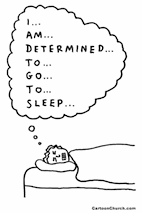 7 to 9 hours recommended dose per day is the NUMBER ONE thing you can do to increase your energy levels, according to the research and I happened to go to a talk last week where the speaker affirmed it.
7 to 9 hours recommended dose per day is the NUMBER ONE thing you can do to increase your energy levels, according to the research and I happened to go to a talk last week where the speaker affirmed it.
I’ve been talking to a good many people who struggle to sleep, so this blog if for you and I’ve decided to test out some of the research. Not that I need to get more. Sleep and I are good mates but I’m very interested in learning how to get the kind of quality sleep that will enable me to leap out of bed in the morning, an hour earlier, with more energy.
Benefits of Sleep
The first thing I found really interesting was the numerous benefits that sleep gives us. We all know sleep’s beneficial but did you know: Sleep builds up the immune system, helps reduce stress, helps control body weight and mood swings, and improves your memory. Needless to say the opposite happens when you’re lacking it. Ok, I have a bit of that going on. Definitely motivated to test out the research, especially what I discovered in point one…
How to sleep more easily
1. The research advises that we establish a regular sleep routine and stick to it. Going to bed at the same time and waking up at the same time will condition your brain for the set bedtime. This makes sense to me being the creatures of habit that we are, but then I found a very interesting experiment: The test subject set his alarm to get up at exactly the same time every morning and only went to bed when he felt sleepy. The litmus test was reading a page till his eyes started to shut. He found his bedtime varied massively but if he listened to his body clock, he always woke up feeling energised. He managed to get up every morning at 5am! It took him 30 days to get into the habit. I’m giving it a go!
2. As you wake up, open the curtains and let the natural light in. This will help establish your body’s internal clock, helping you get sleepy at the same time each night.
3. Since we are photosensitive creatures, it’s imperative that we sleep in a darkened room. ‘Block out’ curtains or an eye mask are helpful. If you need to go to the loo in the middle of the night, leave the light off or plug in a night light.
4. In the hour leading up to bedtime, avoid activities that are stimulating. These can include electromagnetic devices such as laptops, bright, noisy ads from TV, work email, horror fiction, strenuous exercise (making love is an exception).
5. In the four hours leading up to bedtime, avoid substances that are stimulating such as caffeine, nicotine, spicy food, sugar and alcohol. Although alcohol at first makes you feel sleepy since it slows brain activity, your sleep will be more fragmented. It can also exacerbate snoring and sleep apnea.
6. Don’t go to bed on a full stomach, although a grumbling one is also prohibitive. Try to eat your biggest meal in the middle of the day. Remember that glass of warm milk your mum used to give you before bed? It contains a chemical called tryptophan, which actually makes you feel sleepy. Also found in other dairy and soy products, poultry, whole-grains, seeds and nuts.
7. The more stressed we are, the more irritable we feel and the less likely we can relax into sleep. Take regular mind breaks throughout the day and before bed. A mind break is not simply a rest from the desk. It involves quietening your mind. One effective way of doing this is to breathe slowly from the belly and follow the breath in through the nose down the back of the body to the feet and breathe out up the front of the body, back out of the nose. Let go of any thoughts that enter and focus back on the breath. An alternative is to step out of the office and take a short walk, ideally in nature and try keeping part of your focus on the breath.
8. Exercise helps you sleep sounder and longer. If you have a stressful day job avoid the kind of aerobic exercise where the instructor screams at you. This can stimulate the stress hormone cortisol, which will fire you up. Exercise before 8pm (or at least three hours before bedtime) as exercise stimulates your muscles, brain and heart – the opposite of what you want.
9. Sleep in a cool room, as a drop in temperature sends the body to sleep. And get this – a warm bath 90mins before bed is also recommended, which seems contradictory, except it’s the drop in temperature once you get out, that induces sleep.
10. If you toss and turn for more than 30mins, get up and do something boring. Sit quietly or read something calming and not one of those novels that hook you in till 3am. Keep the lights low and as soon as you feel sleepy saunter back to bed.